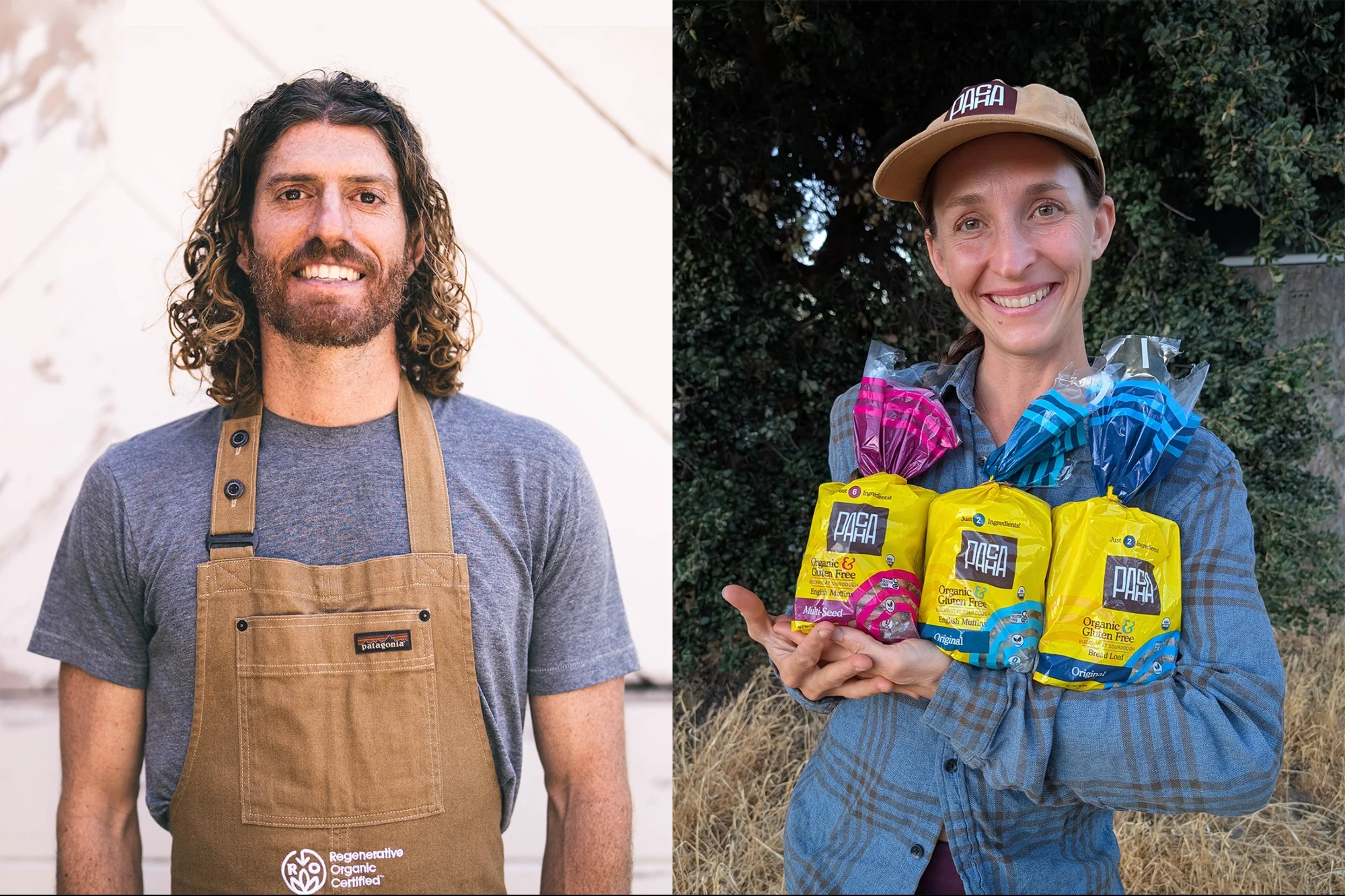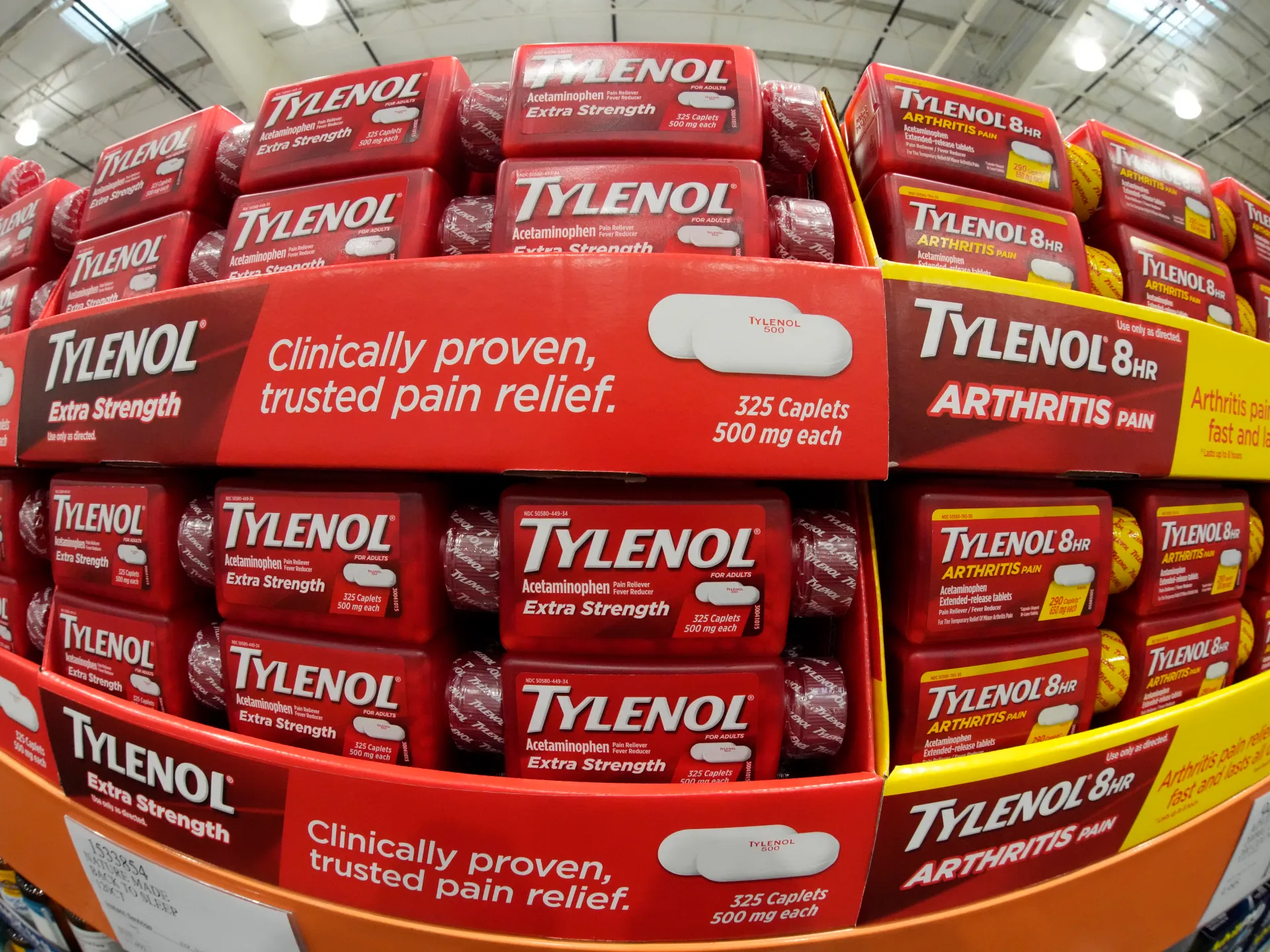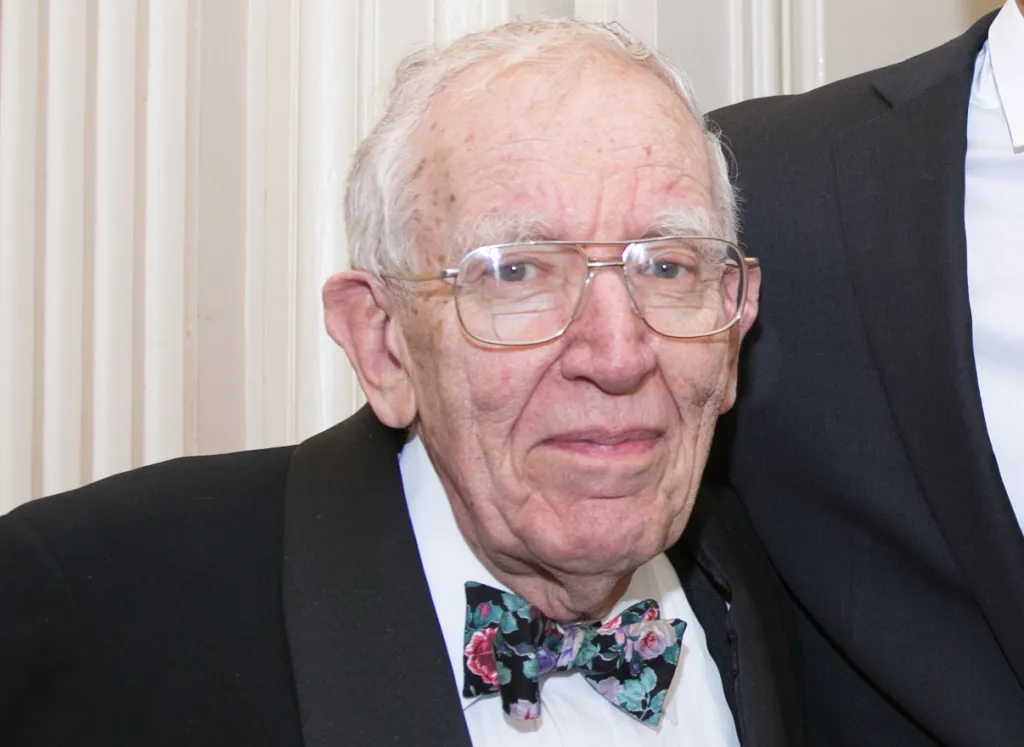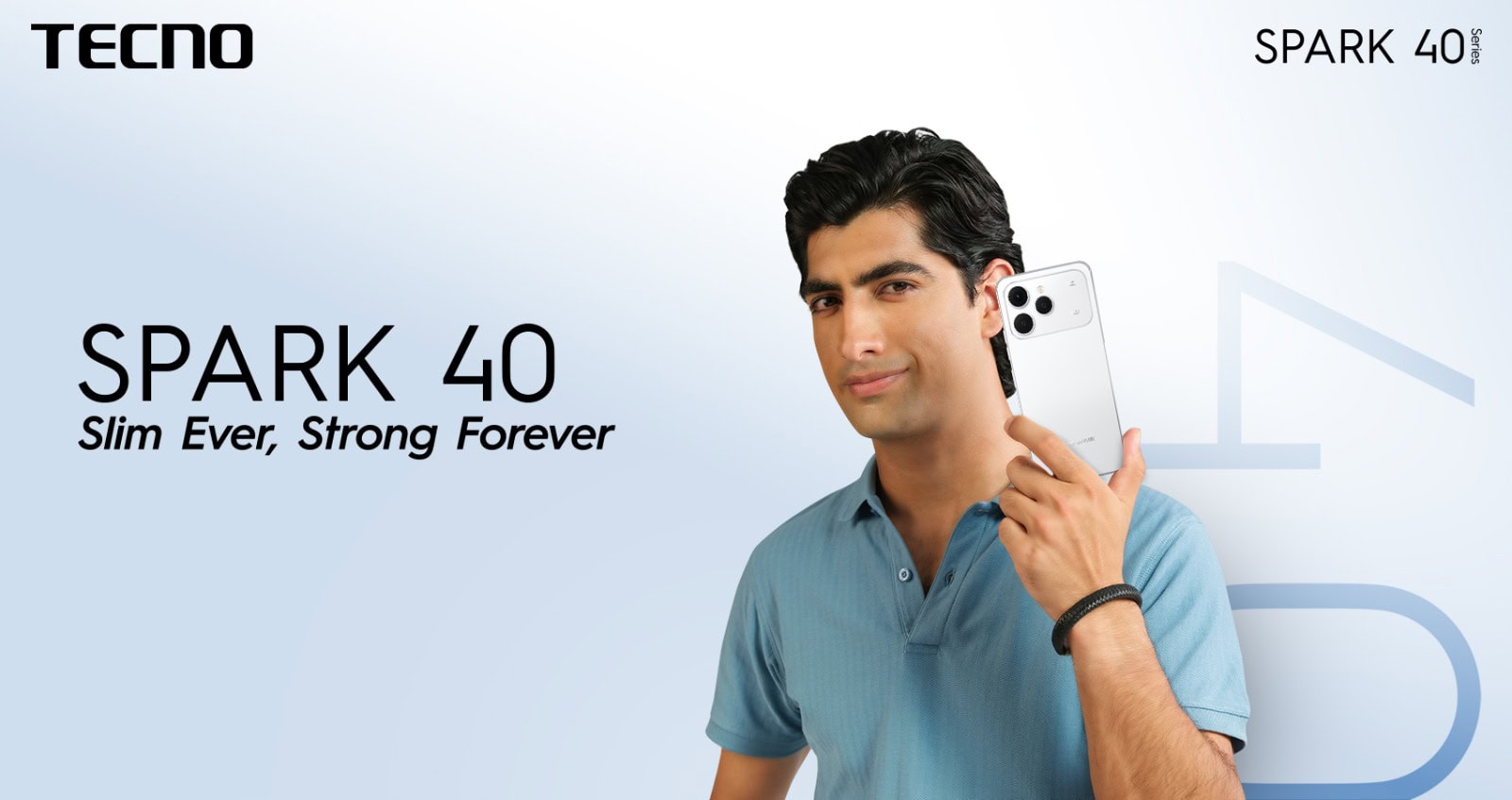
Adam Hiner and Maddie Hamann, the married co-founders of Pacha, didn’t set out to start a gluten-free bread business.
But in June 2018, when Hiner wasn’t eating gluten and a friend shared a recipe for bread omitting the ingredient, he was “blown away by the simplicity” and how good he felt after eating it.
Before long, the San Diego, California-based entrepreneur was making the recipe for his friends and family, who couldn’t get enough. Then he began supplying a local restaurant with the bread. It became apparent that the product could fill a serious gap in the market.
Hamann, who’d just finished her PhD in oceanography, wanted to join the venture and put her “math and science skills to good use.” She’d already seen Hiner make a real difference in regenerative agriculture while building his other business, the hard kombucha brand Boochcraft, and she saw an opportunity to do the same with the bread business.
” When we met, he was doing impact work for Boochcraft,” Hamann recalls, “going to farms, doing work that was actually drawing carbon down, helping with water retention and growing biodiversity. And the dollars from the business were making that possible.”
Related: His Salty Side Hustle Saw Revenue ‘From Day 1′ and Hit $10 Million Last Year
So the couple gave the bread business, Pacha, a go.
Image Credit: Courtesy of Pacha
Hiner and Hamann rented a 350-square-foot kitchen in Chula Vista, put in a couple of ovens and baked bread on a small scale. The couple hired Hamann’s brother as their first employee; he moved from Ohio to help. That kitchen contract began on April 1, 2020, which meant immediate pressure from the pandemic.
“This is a really interesting time to be in the startup world.”
But the co-founders weren’t deterred. They sold their bread at the farmers’ market at Pacific Beach when possible and established a bread-pickup service, which allowed people to place orders online.
The business was bootstrapped “out of necessity” — and always with the intention to scale. “This is a really interesting time to be in the startup world,” Hamann says. “There’s not much funding going towards ideas at the moment. So we’ve been fundraising since we started.”
Related: A Founder Who Bootstrapped Her Jewelry Business with Just $1,000 Now Sees 7-Figure Revenue Because She Knew Something About Her Customers Nobody Else Did
Pacha has undertaken three crowdfunding campaigns through Wefunder; the first two netted $1.3 million, and the most recent another $200,000, Hamann notes.
“Lessons like that [teach] us to be more diligent with the team and more process-oriented.”
Of course, like most small businesses, Pacha has experienced some challenges along the way.
Pacha handles its own production and manufacturing, and “a series of little mistakes” has helped the brand refine the processes it relies on today. For example, one time, they underfilled all the loaf pans by the slightest amount, and an entire batch of 4,000 loaves was too small to sell.
“Lessons like that [teach] us to be more diligent with the team and more process-oriented,” Hiner says. “In the beginning, if you’re one person making the bread, you can have everything in your head and know exactly how to do it. Now we have a team of 30 people, and it’s not enough for just me or even our production manager or team leads to know how to do it.”
Despite the ups and downs, the co-founders continue to prioritize a hands-on approach with the business.
” I wouldn’t want to have a company where we’re just a marketing company and we don’t actually make the product,” Hiner says. “I love having that piece of it.”
Image Credit: Courtesy of Pacha
Related: I Interviewed 5 Entrepreneurs Generating Up to $20 Million in Revenue a Year — And They All Have the Same Regret About Starting Their Business
Entering the direct-to-consumer market wasn’t the co-founders’ original intention. Initially, they had difficulties getting a “yes” from retailers — fortunately, once they started slicing their bread, that changed — and an ecommerce expert friend said the product could be a strong fit for DTC. So they gave it a shot.
The two-pronged strategy paid off. Now, Pacha boasts a profitable ecommerce channel that’s scaling steadily despite decreased advertising spend. It’s on track for $5 million in revenue in 2025 as it continues its retail expansion in Whole Foods, Albertsons and Sprouts for a total of more than 4,700 points of distribution this year, per the company.
“We were like, Well, people might pay more for a special bread.”
One of the business’s most profitable endeavors — made possible by self-manufacturing — is its special flavor releases, which it primarily sells to its email list. The idea came from a conversation with a friend, who thought Pacha might increase its ecommerce profit margins if it followed in the footsteps of Coconut Cult, a viral yogurt brand that charges a premium for its limited edition jars.
“We were like, Well, people might pay more for a special bread,” Hamann recalls. “We [couldn’t] afford to sell that stuff at the same price that we sell our regular bread for because ingredients actually do cost a lot more, but it was like, Oh, we could make it an even higher margin if there was this exclusivity.”
The business’s most recent drop, the Fig & Olive PEACE loaf, partnered with Sindyanna of Galilee and Big Picture Foods and donated 100% of profits to the regenerative beekeeping initiative Bees for Peace.
Related: This Couple’s ‘Scrappy’ Side Hustle Sold Out in 1 Weekend — It Hit $1 Million in 3 Years and Now Makes Millions Annually: ‘Lean But Powerful’
Now, as Pacha eyes continued growth, the co-founders look forward to the launch of its tortillas, which will be available in Whole Foods nationwide this December. Whole Foods has the exclusive for 90 days, after which the tortillas will sell in other retailers, too.
“We really think that the tortillas have a more broad appeal,” Hiner says, “and that we can bridge into conventional grocery through the tortillas and [in] club stores like Costco. I think we’re really going to see a big leap in retail success with tortillas.”
Image Credit: Courtesy of Pacha
At the same time, Pacha remains dedicated to a big-picture mission: Supporting the transition to regenerative agriculture.
” So, a little bit pie in the sky, but I am looking forward to the day when American customers actually know what regenerative means and are looking for it in the way they’re looking for organic,” Hamann says.
Related: I’ve Interviewed Over 100 Entrepreneurs Who Started Businesses Worth $1 Million to $1 Billion or More. Here’s Some of Their Best Advice.
“I’ve found that the next thing always leads me to the next thing.”
To any aspiring entrepreneur hoping to start their own business that makes a real impact, the co-founders suggest being super clear on the “why” behind your big idea. Then, be willing to work hard toward its success — and no matter what comes your way, just put one foot in front of the other.
“What’s the next thing you need to do?” Hiner says. “Do that. I’ve found that the next thing always leads me to the next thing, and it’s not always the thing I thought. [With Pacha], we’ve done a lot of different things that we didn’t imagine we were going to do because we just kept taking the next step.”



